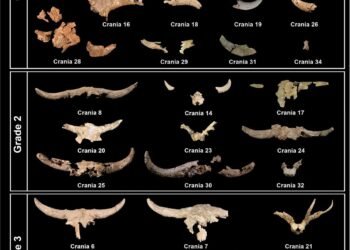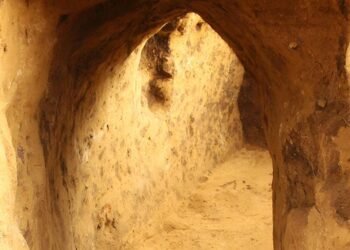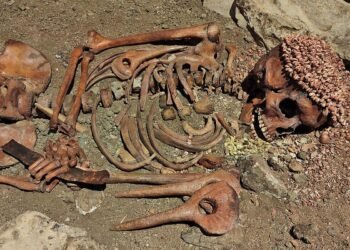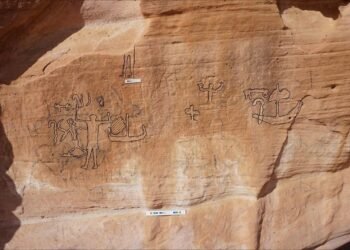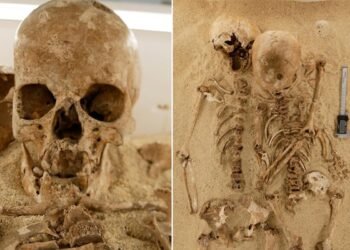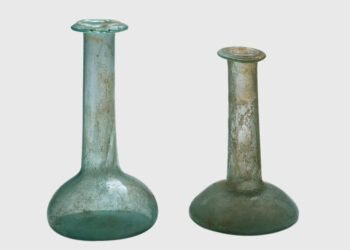Archaeologists from the National Institute of Anthropology and History (INAH) have uncovered an offering of human sacrifices dating back to the pre-Hispanic era in the Mexican town of Pozo de Ibarra.

The discovery occurred during the construction of a sewage network, revealing a burial site with a complex arrangement of human bones and skulls. The excavation revealed a primary burial accompanied by a deposit of bones and skulls without any anatomical relationship.
Among the findings were femurs, tibias, ulnas, and at least seven complete skulls, all deliberately positioned or stacked atop one another. Some of the skulls displayed evidence of cranial modification, a practice common among Mesoamerican cultures for aesthetic and possibly social distinction purposes.
Claudia Servín Rosas, the archaeologist leading the salvage operations, explained that the arrangement of the bones suggests specific ceremonial practices associated with death in the pre-Hispanic era. This discovery is believed to be related to the Amapa cultural phase (500-800/850 CE), as ceramic vessels and anthropomorphic figurines from that period were also recovered at the site.
The excavation team’s analysis suggests that the burial may have been part of funeral rites performed in the domestic units of the region, potentially involving the sacrifice of male members of the same family to celebrate the founding of a settlement.
The discovery is exceptional, as there are no precedents for this type of burial in other nearby sites. Strategies for the preservation of the remains have been implemented to ensure their conservation.
INAH researchers are now preparing to continue the archaeological salvage to address the next stage of the project, aiming to conduct more detailed studies regarding the worldview of the pre-Hispanic society inhabiting the area.



